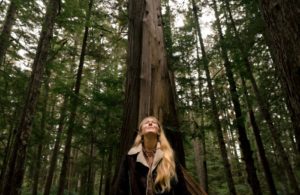In September, when the editor of Nexus and I hashed out the details of this column, I realized that Unsettled and Striving would benefit me most of all. At that point I hadn’t written anything in 2020, and, like so many others, I was feeling lost and depleted with the strict social-distancing and isolation regulations. I am a creative who thrives off the energy of in-person connection. In a pinch, deadlines would have to be inspiration enough. And they have been.
Last summer, when I learned that Camosun would be completely online for the “COVID terms,” I leapt at the opportunity to attend classes from my home on Haida Gwaii. If I was to be stuck in isolation, I might as well learn something. The timing also aligned perfectly with my piqued exasperation at the vast gaps in my knowledge about the establishment of so-called “Canada.”

It can be tough, graduating public school and stepping into the world without any hint of awareness that there might be more to learn about this continent beyond the names and dates fed to us of the European “founders of this country.”
It gets difficult when the truth starts to show itself through phrases and statements and posters that nudge an agenda of honesty and reality, one that contradicts everything you were raised to believe. It becomes even more difficult when you begin asking questions to those you look up to, the “adults” that shaped you, and they sweep the subject under the rug faster than you can say “stolen land.”
I’ve always found the internet overwhelming and more stressful than not. With none of my settler family open to discussing the realities of how we came to be here, I found myself flailing around on the web, reading articles that boast every possible perspective followed by lengthy arguments contradicting each aforementioned perspective.
Camosun’s Indigenous Studies program has been a breath of fresh air. Not only is the truth being taught as plain fact and laid out easily by instructors, it’s helped me shrug off the heavy blanket of guilt I had come to associate with my skin tone.
The history of Europeans’ arrival in so-called “Canada” is not a happy tale. It has taken away any pride I had in associating as “Canadian,” but learning these truths has helped me become a more conscious and respectful guest on this territory. I wish for this kind of honesty to be available to any and every visitor who travels to Turtle Island or chooses to call it home.
If you are unaware of the topics I reference here today, I encourage you to go to your local library or bookstore and seek out Indigenous authors. It is their voices we must turn to for transparent accounts of this land’s history.
